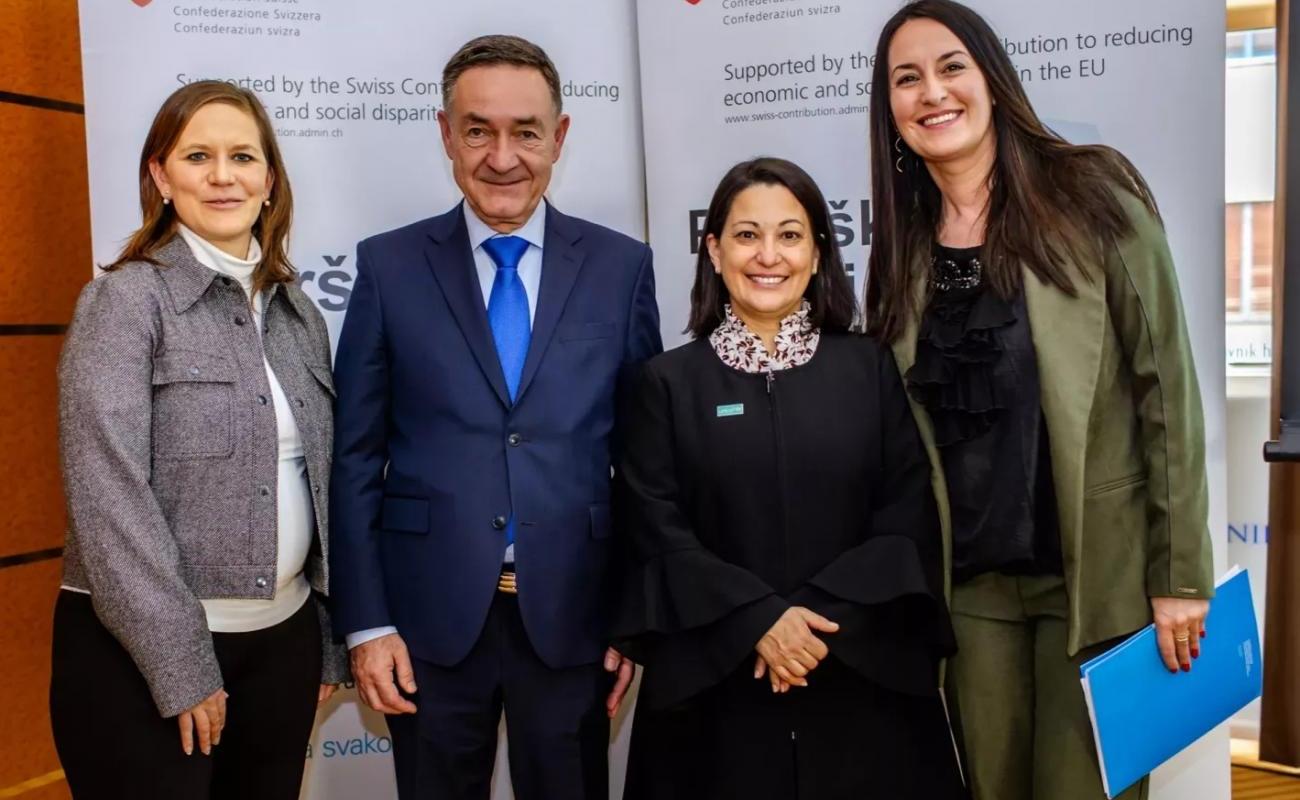UNICEF and the Government of the Swiss Confederation are strengthening their support for refugee and migrant children in Croatia

More than 500 of the most vulnerable children and 115 parents and guardians displaced from Ukraine during the past year utilized specialized psychosocial support services, including individual counselling and group workshops in the Ukrainian language, as well as basic family support and child protection services and essential supplies. In addition, more than 1.900 experts and social service providers were trained on important topics such as trauma, foster care for unaccompanied children, or providing support for mental health in crisis situations, ensuring access to psychosocial support services for more than 7.700 children and 17.000 individuals caring for children displaced from Ukraine that could be reached through the system. This is only a portion of the results achieved during the 13-month support program for children and families from Ukraine by the UNICEF Office for Croatia and the State Secretariat for Migration of the Swiss Confederation (SEM).
“Supporting integration of refugee and migrant children in host EU countries” programme was implemented in six European Union countries, including the Republic of Croatia, in response to the situation caused by the war in Ukraine, and was funded by the Government of the Swiss Confederation. Investments and activities in this programme improved access to child protection and family support services for families and children from Ukraine, ensured that unaccompanied children grow up in a safe family environment, and strengthened national systems to more effectively support refugee and migrant children and their families. Educational programs for foster families, experts of family legal protection measures, and family assistants were developed through this program, an assessment of the development of information systems for collecting, processing, and exchanging data on unaccompanied children, as well as an analytical assessment of guardianship, international protection, and the protection of unaccompanied children displaced from Ukraine, were conducted.
“Child is a child, regardless of their nationality, their background, or their status. Migrant children go through a lot, and it’s crucial that all their rights are respected. We are so grateful to the Government of Switzerland for their generosity and investing in children from Ukraine in Croatia. For us in UNICEF, this is not a short-term programme, we are committed to the sustainability of our activities. The new agreement of cooperation with the Government of Switzerland will strengthen the support not only for Ukrainian children but for all migrant children who come to Croatia. We believe that this will allow us to support the system and further strengthen the cooperation with the Government in Croatia to ensure that Croatia has everything in place to ensure timely access to services and integration of migrant children and families to Croatian society, so that no child is left behind”, said Regina Castillo, UNICEF Croatia Representative.
UNICEF and SEM continue their collaboration during the next two-year period, within the “Supporting protection and integration of children and families in migration in Croatia” programme with the aim of protecting and integrating the most vulnerable children and families of migrants in Croatia, including refugees from Ukraine. The collaboration will include improving access to community services, such as child protection and family support services, as well as high-quality guardianship, early childhood intervention, mental health support, and psychosocial support, integration into the education system, and strengthening the capacities of experts and the introduction and strengthening of policies.
It is expected that the new programme will directly impact around 7.000 migrant children and their parents and caregivers, including more than 700 unaccompanied children and children separated from their parents. Additionally, over 800 professionals from various sectors will improve their knowledge in providing services to migrant children, adolescents, and their families, as well as those caring for them, and almost 1.000 households will benefit from improved social benefits and services.
